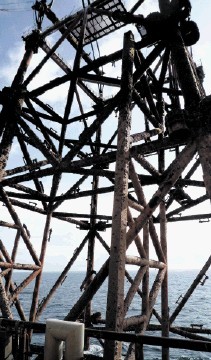
The UK shadow energy minister has warned against profiteering from early decommissioning in the North Sea at the expense of achieving the maximum recovery of resources.
Labour MP Alan Whitehead said the consensus was there would not be any new big discoveries in the future, with oil coming mostly from small pools.
Not large enough to merit their own infrastructure, companies looking to extract the oil would need to “piggyback” on existing frameworks, he added.
The resulting risk, he said, was that firms hoping to cash in on decommissioning would seal these off too soon, effectively cutting off the smaller pockets.
Mr Whitehead, whose brief also includes climate change, said better methods of infrastructure sharing would be important going forward.
He added: “We are in a very different era than we were previously when companies buccaneered their way into large discoveries.
“It’s very much a case now of people thinking how we can together make best use our resources and our infrastructure.
“That among, other things, includes standardisation to get the best out of those smaller pockets.
“There is no alternative to that way of doing things because there are pretty certainly not going to be any new big discoveries in the North Sea in the future.
“The new round of licensing for frontier areas has looked quite interesting, but I think the consensus is we aren’t suddenly going to find a Brent or an Ekofisk.
“The imperative absolutely is on co-operation over the next period and how we can best incentivise that cooperation.”
Mr Whitehead said part of the problem was the decommissioning process seemed to be turning into “a potentially quite lucrative industry in its own right”.
“There are people who are looking at decommissioning almost as a new North Sea industry which is a strange way to look at it,” he added.
“Getting a much more controlled and coherent programme of decommissioning in place also has to be a priority over the next period.
“People literally need to be stopped from decommissioning certain plants which would isolate those smaller fields.”
He also called for the development of better loan guarantees for offshore infrastructure and on the Treasury to consider more than just support for traditional activities such as tax relief on drilling and exploration allowances.
“It has actually got much more complicated than that,” he said.
“Incentivising controlled decommissioning and providing underwriting for loans (is needed), particularly because a lot of the small pool activity is likely to be from third-tier companies.
“That’s where the loan guarantees ought to be going. A tailored programme of getting the right incentives in the right place I think would have been the right thing to do.
“The need is really quite urgent in terms of what’s happening with the industry generally.
“I hope there is active consideration of this strategy going on in the Treasury.”
Asked about Labour’s policy to set a target date to end new fossil fuel extraction and wind up support for “dirty energy”, he said the party’s focus had been coal.
He added: “We are certainly going to need oil in some shape or form for a very long time to come.
“But the overall long-term position and the idea that we continue to make the North Sea oil work well for the UK economy meanwhile aren’t mutually contradictory propositions.”
Recommended for you
